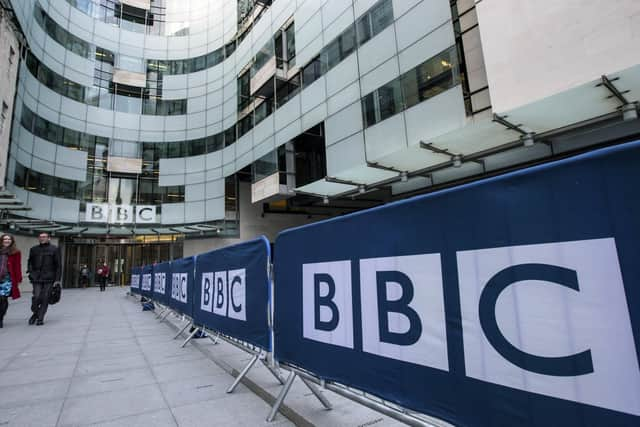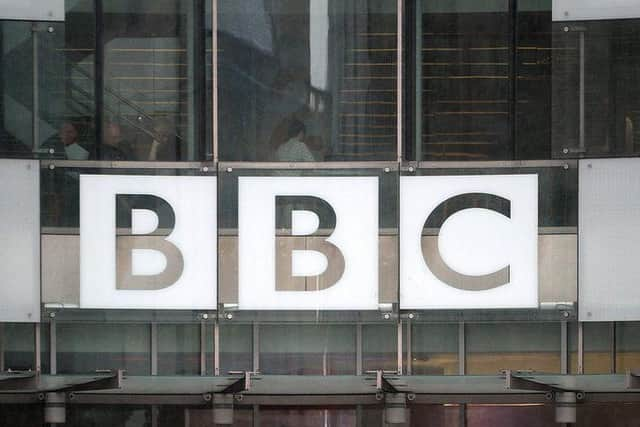Did BBC get it wrong over coverage of Duke’s death? - David Behrens
For years we’ve been fond of moaning that there’s nothing on TV. Last Friday night, if you didn’t want to watch the rolling news coverage, that was literally the case. BBC2 carried the same programmes as BBC1 and the third network, the misleadingly-named BBC4, was taken off air completely. Viewing figures fell through the floor.
The BBC had been rehearsing for decades what it would do in the event of a death at the very top of the British establishment. This was the first time since that of the Queen Mother in 2002 and Sir Winston Churchill in 1965 that it had to put the plans into practice. In doing so, it demonstrated that its contingencies had not kept pace with the changing times. The wall-to-wall coverage was received predictably badly on the new networks of Facebook, Twitter and the rest of social media, with armchair commentators comparing it to the mandated mourning one might expect in North Korea. Surely, they argued, with so many TV and radio networks, there was enough bandwidth to offer a choice of viewing – especially given the BBC’s remit to serve all its licence payers, whether deferential or not.
Advertisement
Hide AdAdvertisement
Hide Ad

A little deft rescheduling would, for instance, have allowed the tributes to dominate the main channel, with the programmes to which people had been looking forward, shifted to BBC2.
Normal programming has not always been hostage to fortune at moments of national unity. Churchill’s funeral, which took place on a Saturday morning, was followed by Grandstand with David Coleman, Juke Box Jury and the Billy Cotton Band Show. This despite the fact that the entire adult audience belonged to the generation for whom Sir Winston’s presence had been as indomitable as that of Big Ben.
The fact that the BBC chose a different route this time might be ascribed to obsequiousness or simply being out of touch with the public mood, especially after a whole year of restricted freedoms. Yet, perversely, the critical reaction also demonstrated our affection for old Auntie – for after just one night without it, it was clear that we wanted it back.
Advertisement
Hide AdAdvertisement
Hide AdIt’s a paradox that will inform the debate on its future which lies ahead. It may lead ultimately to a more nuanced solution than the polarised “leave it alone or lose it” options usually on the table. An infinite number of possibilities is available for modernising and slimming down the institution, and any would be preferable to either of those extremes.


Last weekend’s coverage may become a watershed moment in the Corporation’s 99-year history. It will almost certainly be the last time it goes into the broadcasting equivalent of lockdown for an event that was neither shockingly unexpected – as with the death of the Princess of Wales – nor of constitutional significance.
The plans it invoked had been made when there was an absolute obedience to protocol. But in the summer of 2000, when the then director-general, Greg Dyke, was deemed to have given too little coverage to the Queen Mother’s 100th birthday, there was reportedly hell to pay. As a result, any thought to modernisation was quietly abandoned.
Advertisement
Hide AdAdvertisement
Hide AdTim Luckhurst, the former BBC editor who wrote a history of the Today programme, recalled that the guidelines – and the implicit expectation that Britain would contentedly revert to the social mores of the 1950s upon hearing sad news – were roundly ridiculed by his former colleagues, and that it would take a tidal wave of rebellion from younger viewers to drown out the protests from traditionalists before the old practices would be overturned.
In the event, the BBC helped to facilitate the unrest by putting a one-click complaint form on its website last weekend. This in itself prompted protests that complaining had been made too easy.
The Corporation would have been damned whatever it did. Nevertheless – and whether or not it chooses to acknowledge it publicly – it will have to conduct an internal review of its procedures. The outcome may determine whether we want the future BBC to be our State broadcaster, or merely the national broadcaster. It’s a subtle but important difference.
Advertisement
Hide AdAdvertisement
Hide AdSupport The Yorkshire Post and become a subscriber today. Your subscription will help us to continue to bring quality news to the people of Yorkshire. In return, you’ll see fewer ads on site, get free access to our app and receive exclusive members-only offers. Click here to subscribe.
Comment Guidelines
National World encourages reader discussion on our stories. User feedback, insights and back-and-forth exchanges add a rich layer of context to reporting. Please review our Community Guidelines before commenting.